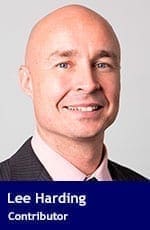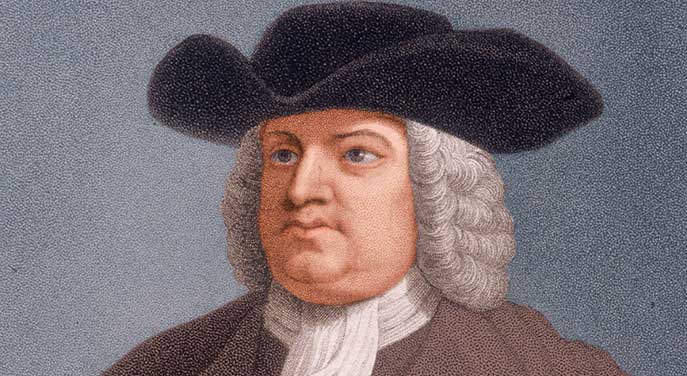 For the defiant act of holding church services despite public health orders, Alberta pastors James Coates, Tim Stephens and Art Pawlowski were arrested and jailed. Some, including those within the faith, think the pastors should acquiesce to the government edicts.
For the defiant act of holding church services despite public health orders, Alberta pastors James Coates, Tim Stephens and Art Pawlowski were arrested and jailed. Some, including those within the faith, think the pastors should acquiesce to the government edicts.
These people forget that it was similar defiance by devout Quaker William Penn that established the freedoms of religion, worship, assembly, and protest centuries ago.
Penn was born in 1644 in London and was given the same name as his father, an English sea captain. When Penn was 15, Quaker missionary Thomas Loe was allowed to join their household. Penn wrote that during Loe’s preaching, “the Lord visited me and gave me divine Impressions of Himself.”
After Oliver Cromwell’s Puritan rule ended, Admiral Penn went on a secret mission to restore the exiled Prince Charles. After he became King Charles II, he knighted Penn and made him Lord Commissioner of the Admiralty.
Under King Charles, parliament restricted all religious sects but the Anglican Church and punished unauthorized worship with imprisonment or deportation. The Five Mile Act of 1665 barred teachers and preachers who did not wholly conform to Anglicanism from living within five miles of their former parish. This five-mile Anglican bubble zone robbed many ministers of their living, especially Quakers. When the plague hit London, Penn watched Quakers, doing acts of mercy, being arrested by police, condemned by those of other denominations and accused of causing the plague.
Hopefully, those who refuse the COVID-19 vaccine will avoid a similar fate.
Penn started attending Quaker meetings and was reunited with Loe. In 1666, Penn openly declared himself a member, saying publicly that Quakers, unlike Puritans, had no political agenda, so laws against them were unjustified. He was jailed but released due to his father’s rank. However, his father disinherited him and kicked him out of the house.
Thereafter, the homeless Penn lived with Quaker families. They would not bow or tip their hats to aristocrats because they believed everyone was equal under God. At some risk, Penn went from town to town preaching that “God who made the world did not dwell in temples made with hands.” This seeded the idea of the rights of the individual, now a central concept for Western democracies.
In 1668, at the request of the Bishop of London, the king issued a warrant for Penn’s arrest for blasphemy. He was imprisoned alone in an unheated cell with the official charge of publishing a tract without a licence. “My prison shall be my grave before I will budge a jot: for I owe my conscience to no mortal man,” said Penn. He was released after eight months.
During the Covid-19 pandemic, households have sometimes been limited to five people inside, large families excluded. This is eerily similar to England’s 1664 Conventicle Act which denied the right of assembly to “more than five persons in addition to members of the family, for any religious purpose not according to the rules of the Church of England.” In 1670, Penn and William Mead intentionally defied the law by street preaching.
A jury found the two “guilty of speaking on Gracechurch Street” but deleted the second half of the original charge “to an unlawful assembly.” An infuriated judge threw the jury in jail without food, water or heat until they would give an acceptable verdict. The judge ordered Penn bound and gagged, but Penn shouted to the jury, “You are Englishmen, mind your Privilege, give not away your Right.” Juror Edward Bushel replied, “Nor shall we ever do.”
After two days, the jurors changed their verdict to “not guilty.” The judge fined each jury member a year’s wage for contempt of court and ordered their imprisonment until the fine was paid. Penn protested that the verdict was contrary to habeas corpus before he was forcibly removed from the court. On appeal, other judges agreed with Penn and freed the jurors. Unlawful confinement was banned, as was a judge’s interference with a jury. Both these conventions last to this day.
Near his death, Penn’s father reinstated his son’s inheritance and asked the king and the Duke of York to make his son a royal counsellor. This they did in acknowledgment of the admiral’s life of service. Penn and other Quakers bought West Jersey in the U.S. so persecuted Quakers could settle there. Penn asked the king to expand the Quaker region, solving both their problems and the king’s, given that the civil strife was intensifying. In 1681, the king granted them 120,000 square kilometres and named the lands “Pennsylvania” in honour of the late admiral.
Penn viewed his rule as a holy trust and determined to exploit neither natives nor immigrants. He negotiated a land-purchase survey with the Lenape tribe and guaranteed their rights to travel through the lands to hunt, fish and gather. He drafted a framework of government that safeguarded private property, free enterprise and fair taxation. It also allowed the amendment of laws, something new for the time. He also drafted a charter of liberties that guaranteed a free and fair trial by jury, freedom of religion, freedom from unjust imprisonment and free elections. The death penalty was limited to murder and treason and prisons included “workshops” to correct inmates.
In 1682, Penn planned and developed the capital city of Philadelphia, a biblical name that means “brotherly love,” which has hosted Pennsylvania’s General Assembly ever since. Even Voltaire praised Pennsylvania as the only government in the world that responded to the people and respected minority rights. Many persecuted sects across Europe, including Jews, poured into the new colony.
Although Penn died in 1718, his “Frame of Government” – his concept of an amendable constitution and his Quaker perspective that “all Persons are equal under God” – were highly influential on America’s founding fathers. In 1791, the First Amendment to the Constitution guaranteed freedoms of speech, religion, press, assembly and airing grievances about the government. These freedoms are echoed in Section 2 of the Canadian Charter of Rights and Freedoms.
A new generation of preachers has risen to defend the constitutional freedoms trampled under the pandemic response. Instead of condemning these leaders, Canadians should be glad for their stand. They have risen as worthy successors to William Penn to preserve and renew the freedoms he spent his life establishing.
Lee Harding is a research associate for the Frontier Centre for Public Policy.
Lee is a Troy Media Thought Leader. For interview requests, click here.
The views, opinions and positions expressed by columnists and contributors are the authors’ alone. They do not inherently or expressly reflect the views, opinions and/or positions of our publication.
© Troy Media
Troy Media is an editorial content provider to media outlets and its own hosted community news outlets across Canada.



The actions of these pastors was uncalled for. Neither were they forced to close their churches or prevented from worshipping God, preaching the Gospel or partaking in ordinances. It is ridiculous to frame having to move Sunday services outdoors or online for a few months. How thoroughly selfish and entitled to insist on doing things a certain way because you’ve always done them that way while people in the greater community are struggling to stay alive.